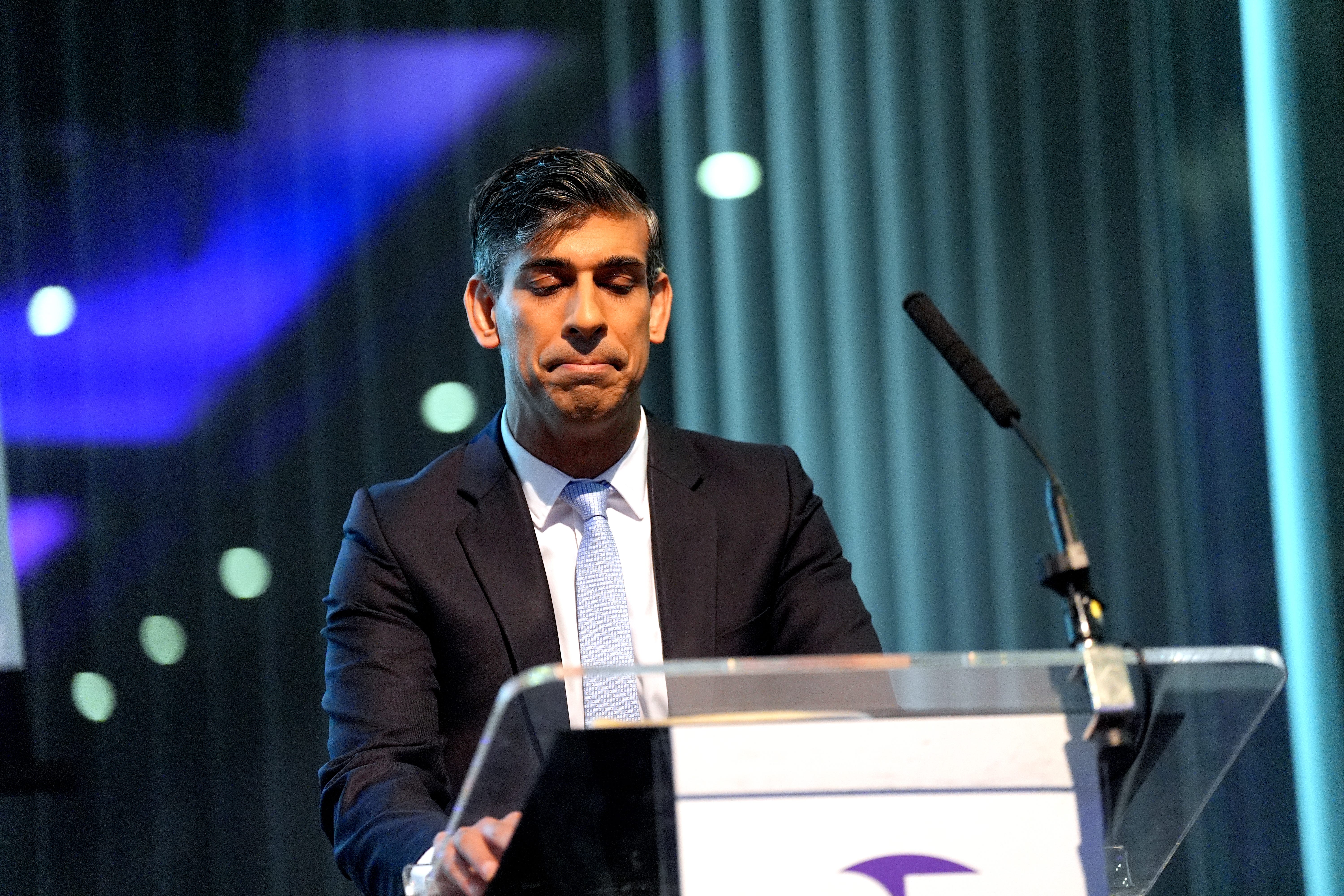The economy is getting better. Will it be enough to save the Tories?
Thanks to the Liz Truss mini-Budget disaster, the Conservatives can no longer claim to be the party of economic competence, writes Andrew Grice. But an election campaign based on the economy is still their best hope of avoiding annihilation


Finally, despite a string of embarrassing local election defeats, and today’s shock defection of Dover MP Natalie Elphicke to Labour, there is some good news for Rishi Sunak. Ministers believe that three economic statistics to be issued over the next two weeks will help to persuade voters the economy has improved by an October or November general election.
Tomorrow (Thursday) the Bank of England might give us a hint about when it will cut interest rates. On Friday, GDP figures will almost certainly show the UK emerged from recession in the first three months of this year. On 22 May, the Office for National Statistics will report that inflation (currently at 3.2 per cent) has dropped close to the Bank’s 2 per cent target.
Tory strategists claim Sunak’s message the economy is "turning a corner" does resonate with voters – a precious oasis of hope in a desert of gloom and pessimism. The forthcoming statistics will strengthen this claim. But the flaw in the strategy is that people will not feel better off by the autumn. Indeed, opinion polls suggest the public believes the economy is getting worse, and that inflation, interest rates and taxes are still going up (which overall taxation is, due to the freeze in allowances and thresholds). So much for Jeremy Hunt’s double cut in national insurance.
The Tories can say "we must stick to the plan" and "the plan is working" a million times before the election – unfortunately for the rest of us, they will – but I doubt it will have much impact because voters simply don’t believe it. Even a majority of Tory supporters think “time for change” rather than “we need to stick to the plan” is the right approach, and only one in four people overall prefer the latter, according to More in Common.
Ministers’ use of statistics is very selective: they won’t remind us about the gloomy figures on living standards, economic growth and consumer confidence – all more revealing about how the public actually feels. As well as being the only parliament since records began to see living standards fall, the past five years may also bring a rare fall in GDP per head (which has happened only once since 1955).
One former cabinet minister admitted to me: “It usually takes six months for interest rate cuts to translate into a feelgood factor.” The Bank might not cut rates until August, so Sunak won’t reap much benefit by the autumn – an illustration of how he is out of time. Privately, ministers are spitting tacks at Andrew Bailey, the Bank’s governor, believing the monetary policy committee was too slow to raise interest rates and is now too tardy in cutting them.
The delay is immensely frustrating for ministers, who originally hoped the first rate cut either this month or next would help them limit the damage from a Liz Truss premiership which destroyed the Tories’ reputation for economic competence.
That was always optimistic. The stain of the Truss disaster was never likely to be erased by the next election; it means the public are in no mood to give the Tories any credit for anything. Some events are defining moments, and Kwasi Kwarteng’s mini-Budget was one of them. So was Black Wednesday in 1992, from which the Tories did not recover, suffering a landslide defeat in 1997 despite five years of growth and low inflation. Lesson: events that voters notice (and there are not many of them) trump dry economic statistics.
By the autumn, Sunak hopes an improving economy will allow him to play a stability card on the economy against an inexperienced Labour Party. To which Labour needs only a two-word reply: Liz Truss.
Unlike Major, Sunak can argue that the face at the top has changed since the economic disaster. It’s true that he and Jeremy Hunt have brought relative stability compared to Truss. (Not difficult). But Sunak missed a golden opportunity to drive home this point by refusing to distance himself from his predecessor as soon as he became prime minister. He preferred to try to unite his party rather than bash the Trussites. That went well, didn’t it?
Sunak could also have shown some contrition for the Tories’ failures. At one level, admitting mistakes would hand Labour more ammunition. But the public like politicians showing humility and saying sorry. That was the only way for Sunak to have a hope of wiping the economic slate clean.
The Tories’ traditional economic card might have worked against Jeremy Corbyn and John McDonnell, but it won’t work against Keir Starmer and Rachel Reeves, who are more trusted than the Tories. Thanks to Truss, Labour can play the stability card against the Tories.
Labour’s mantra is “stability, investment and reform” – hardly one to set the nation’s pulses racing and not the “retail offer” many Labour MPs crave, but a good defence against the Tory attack.
A Tory election campaign based on the economy is a much better bet than focusing on the flawed Rwanda plan; the cost of living is by far the most important issue for voters.
But the most the coming economic blitz can achieve is to limit the scale of the Tories’ defeat. After their party’s local election drubbing, most Tory MPs think that is the best legacy Sunak can hope for now.






Join our commenting forum
Join thought-provoking conversations, follow other Independent readers and see their replies
Comments